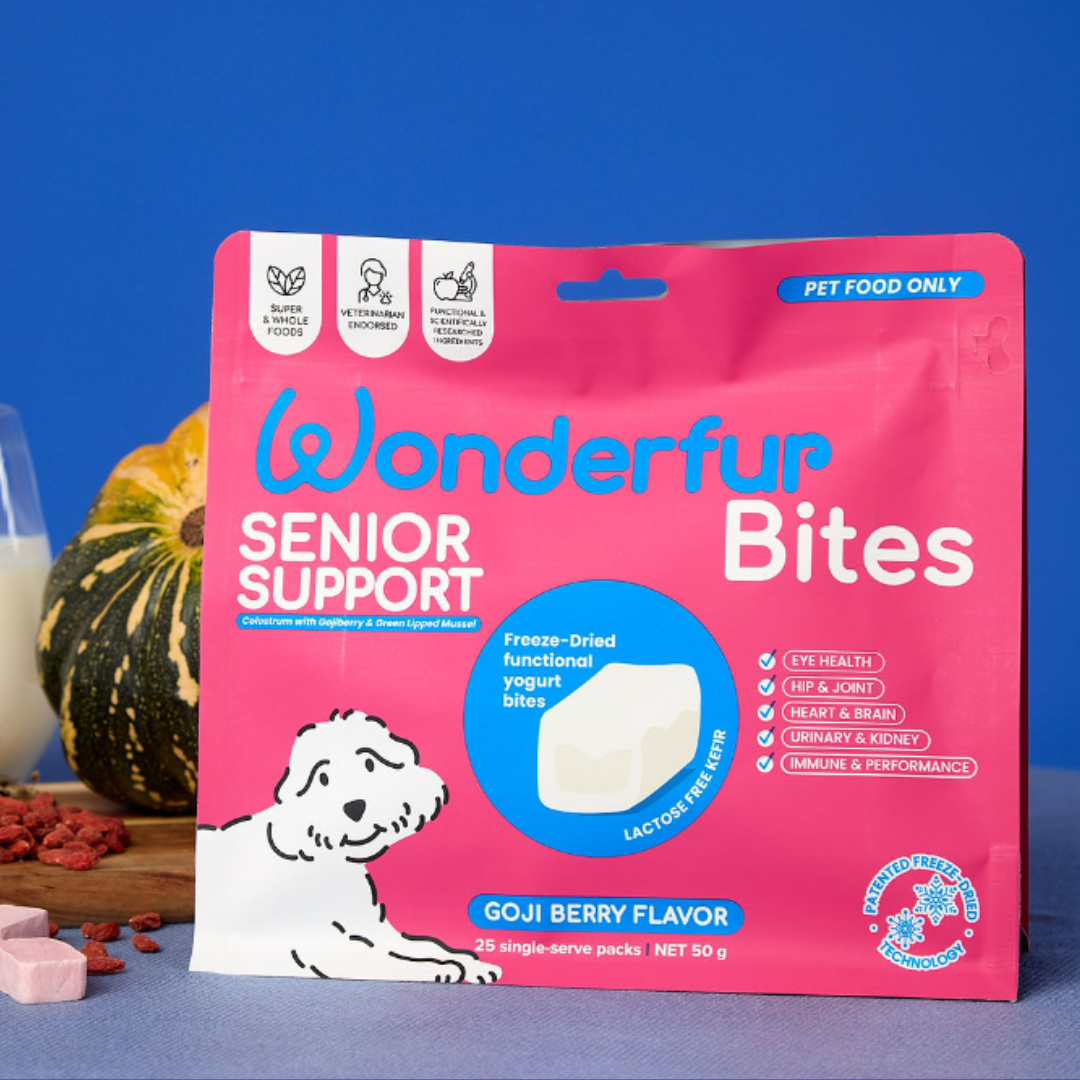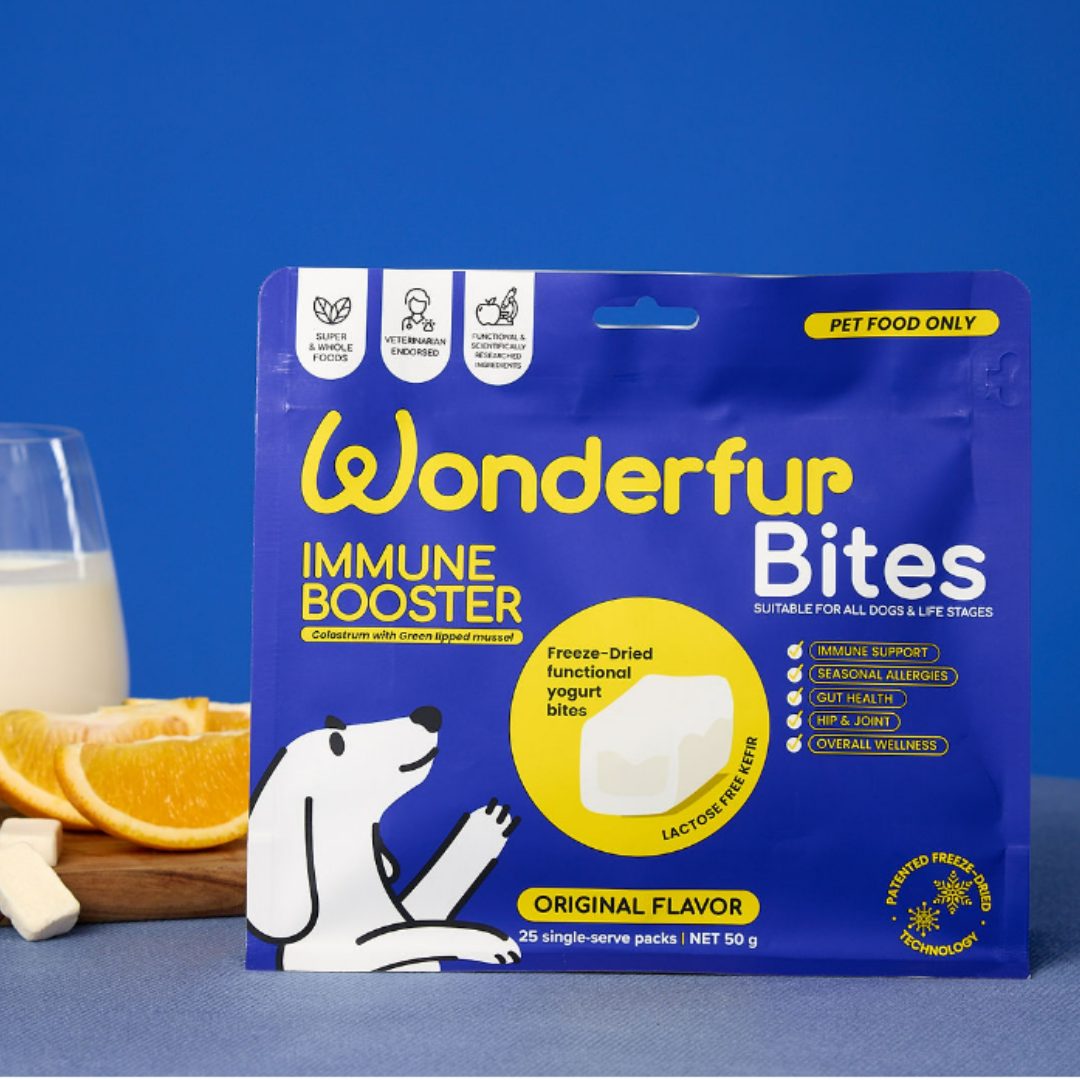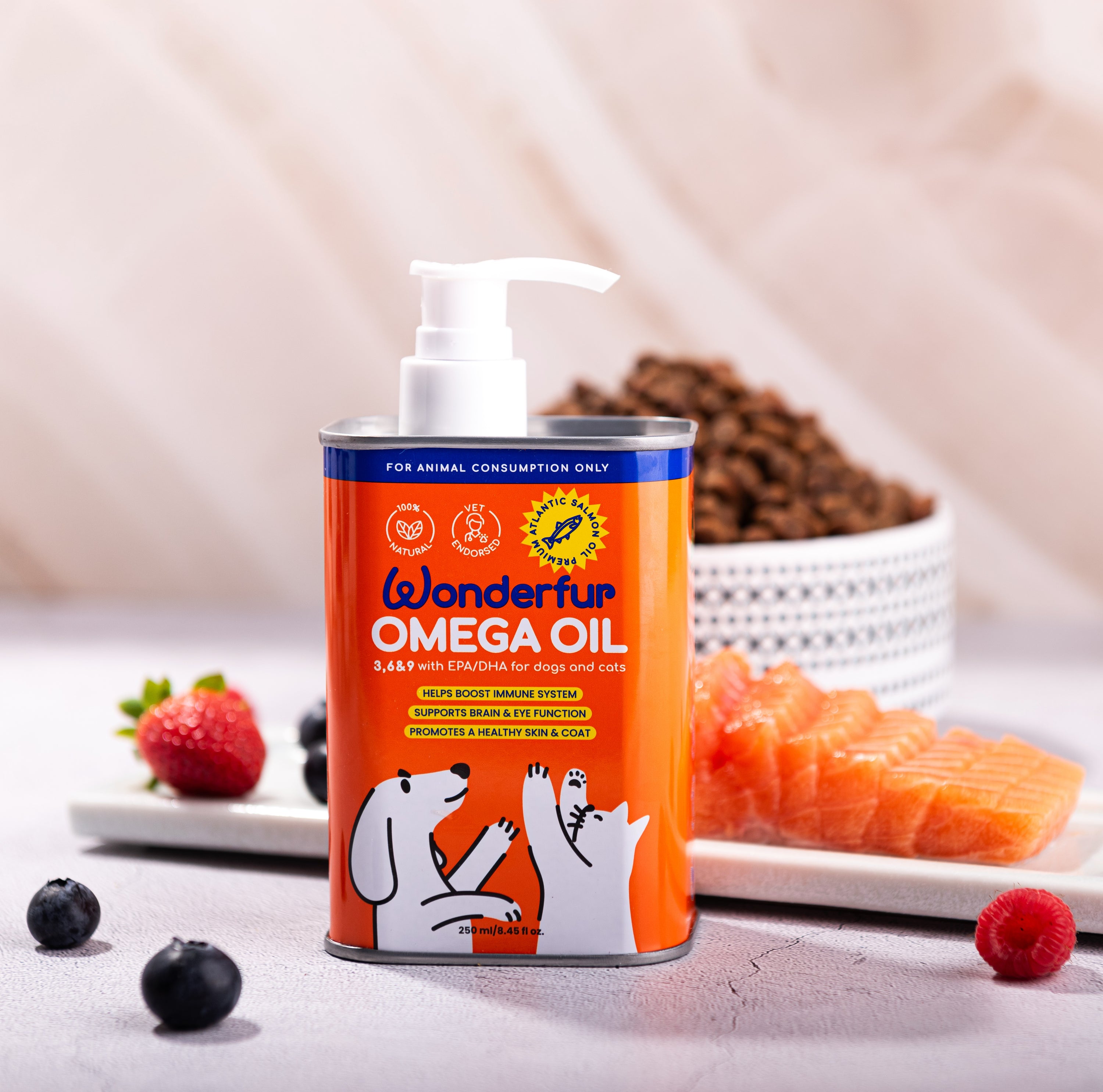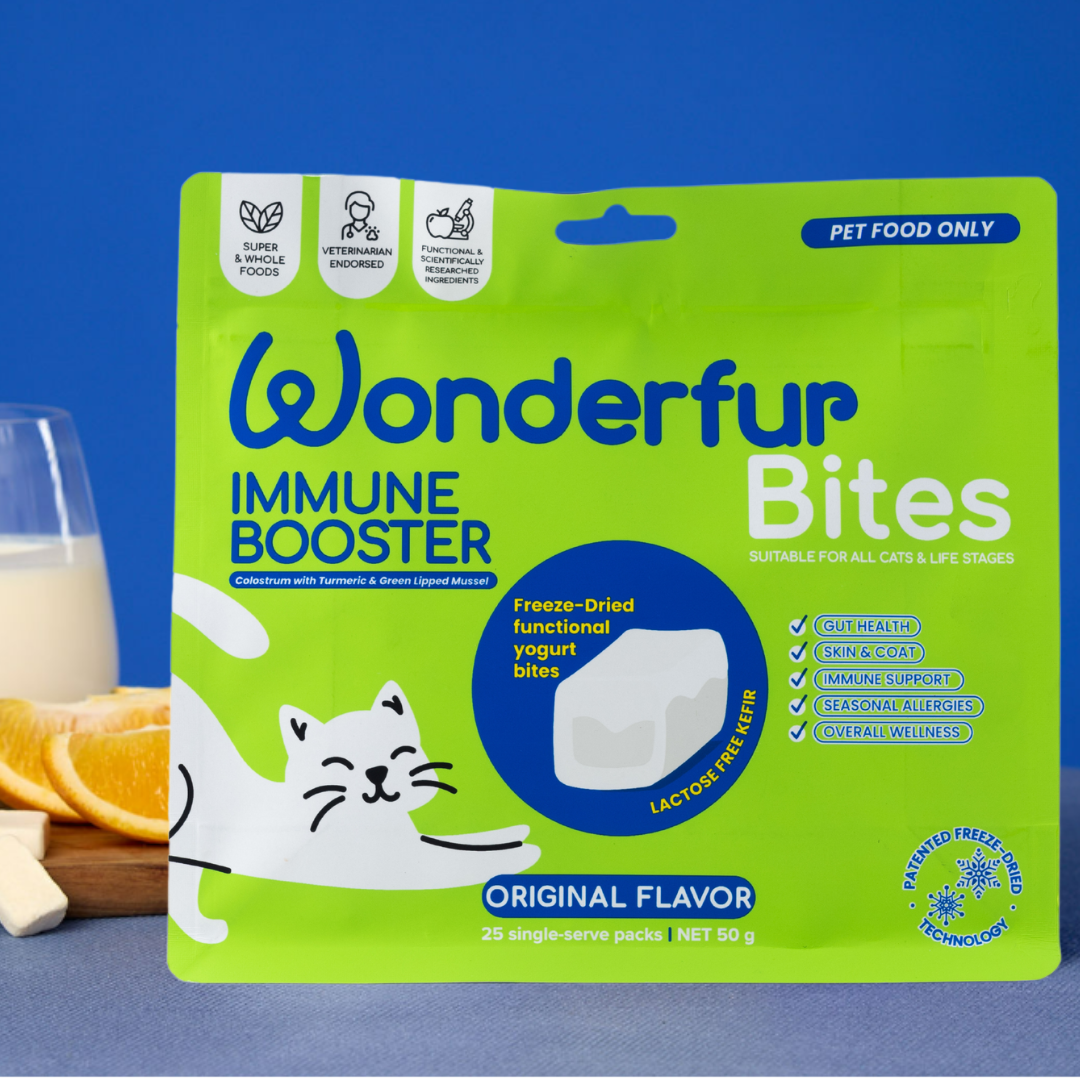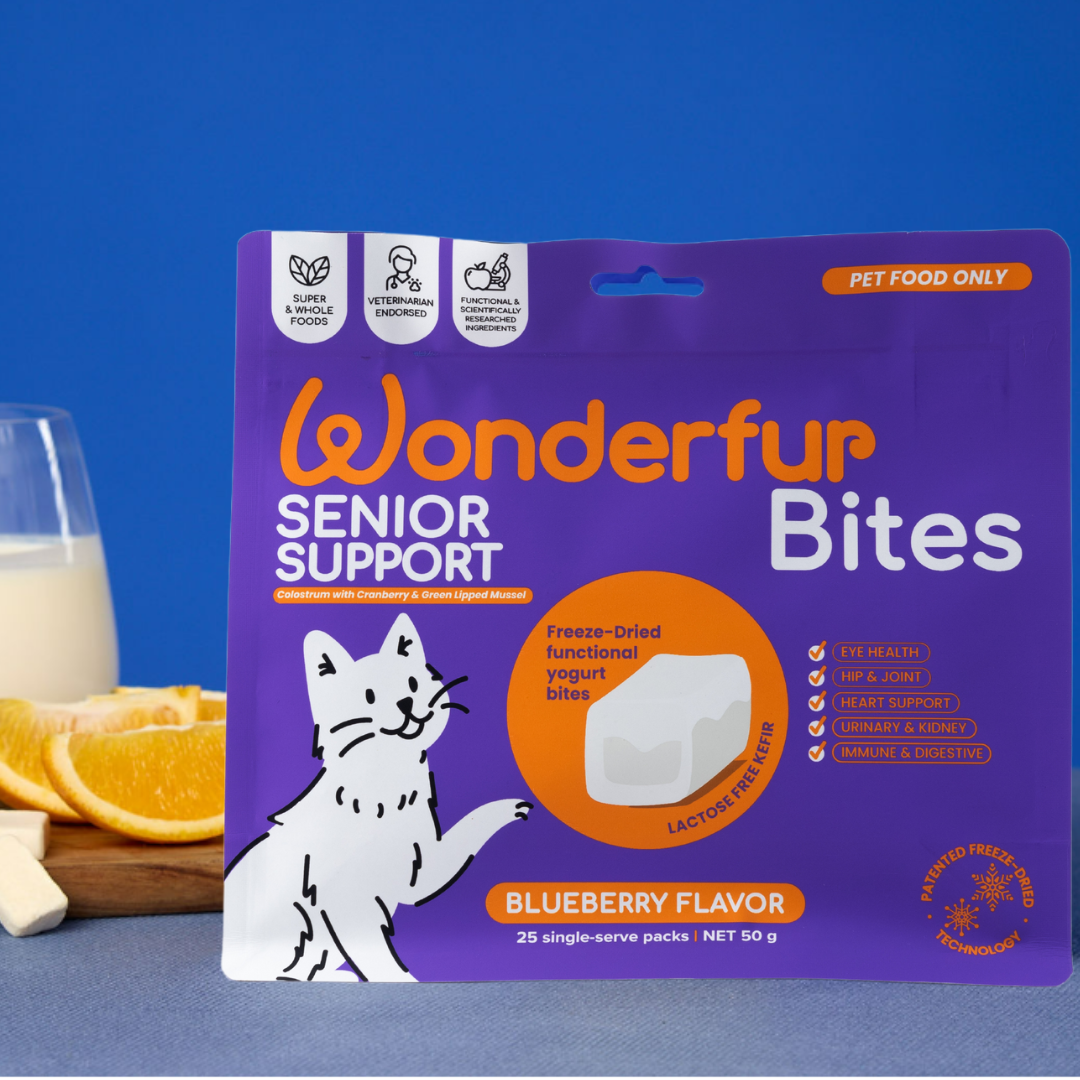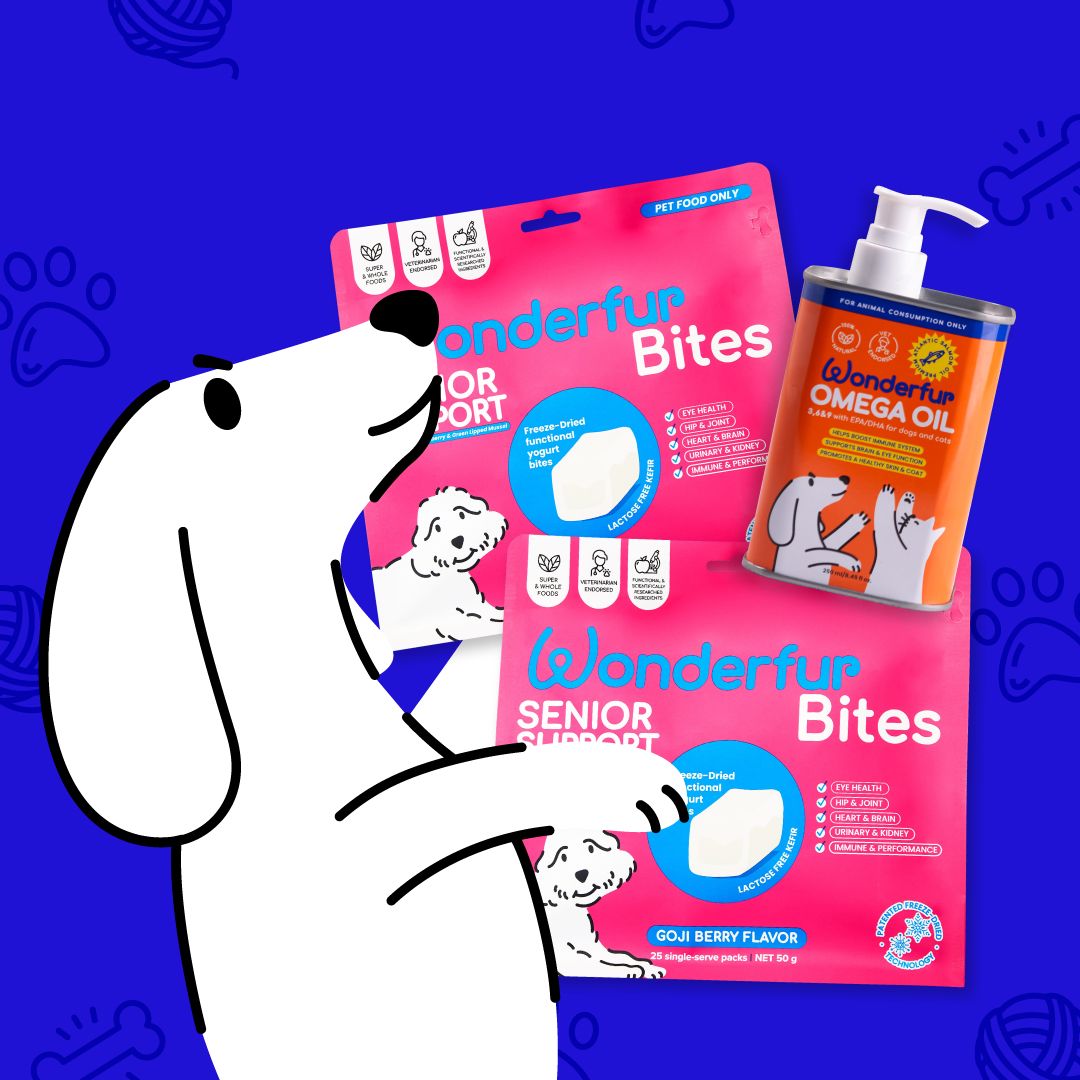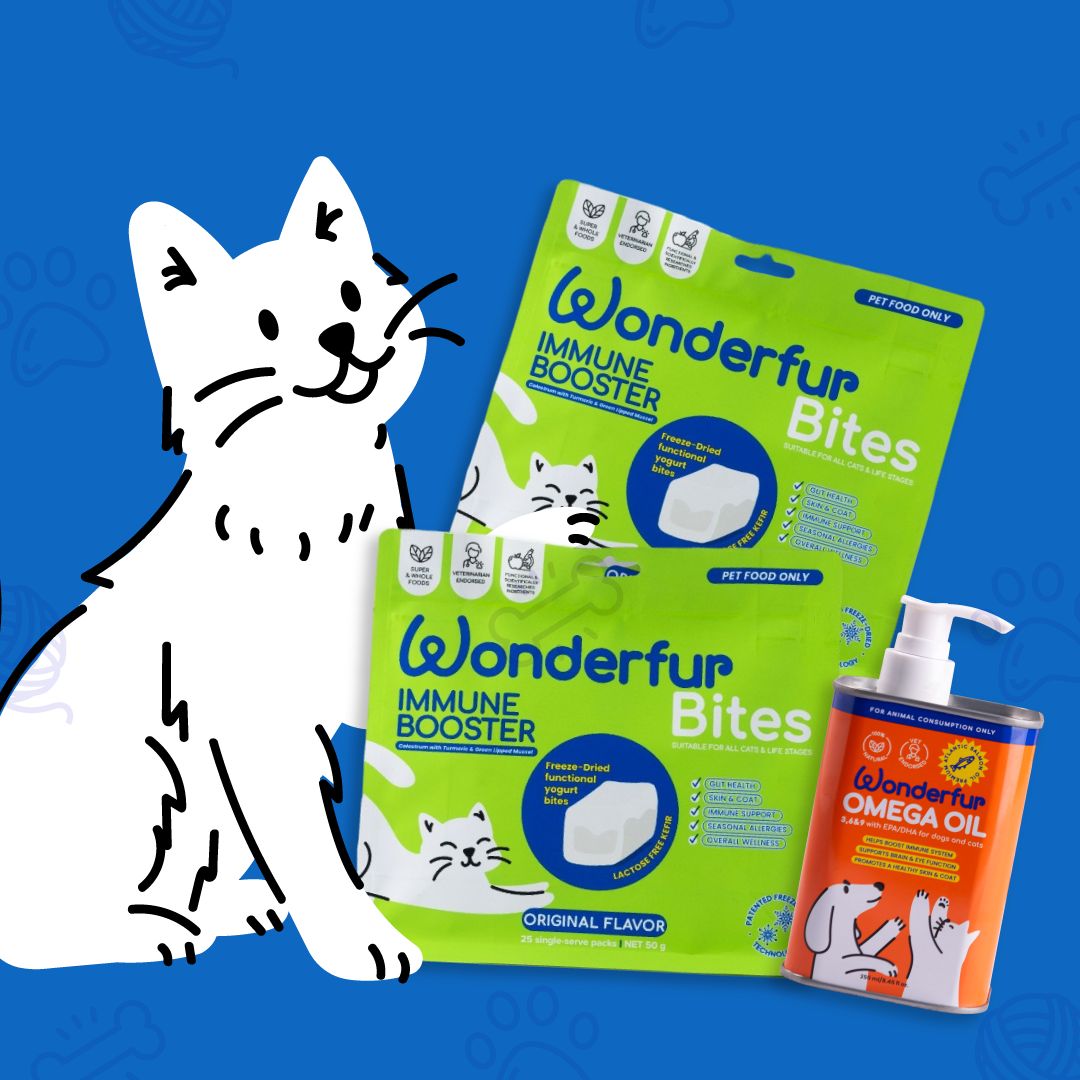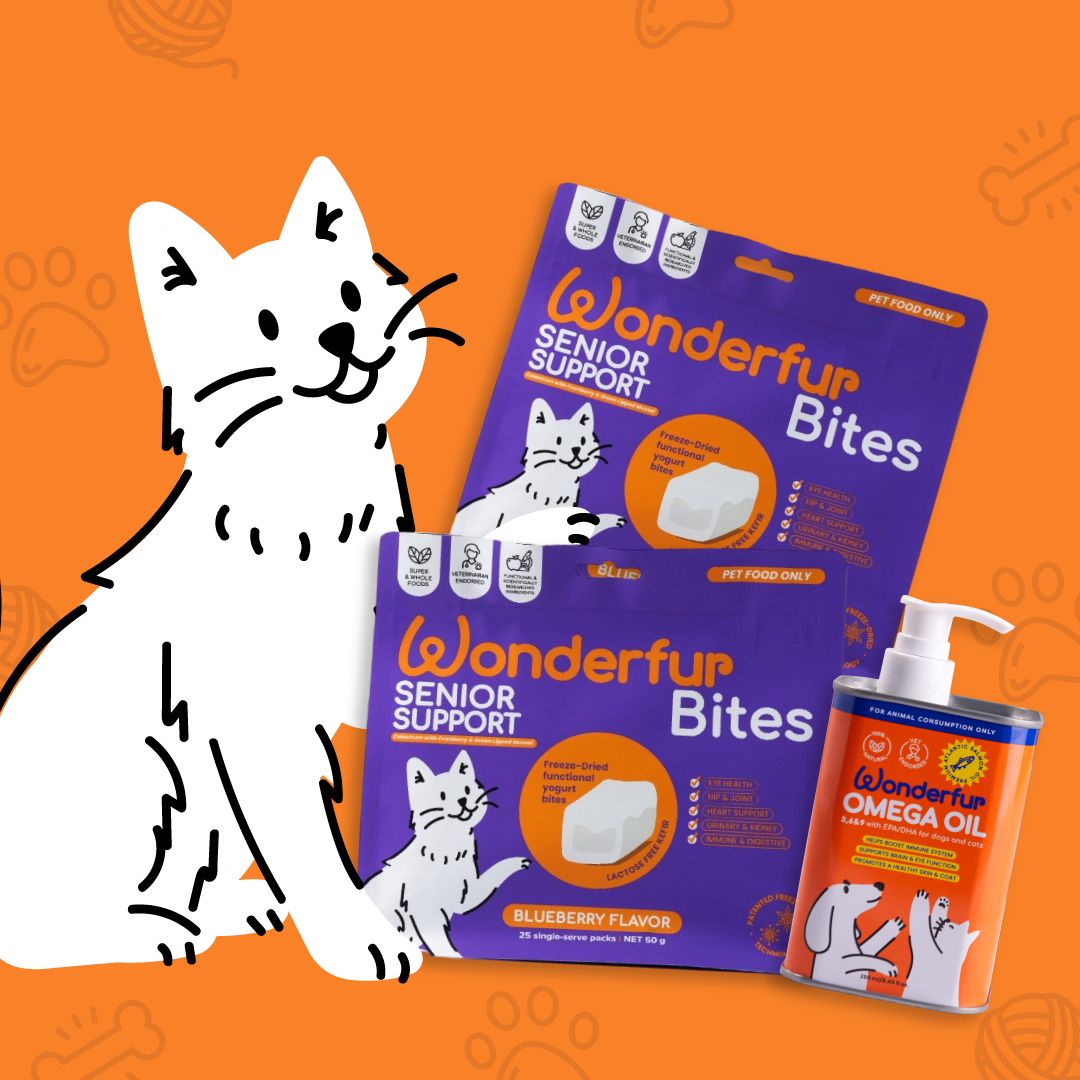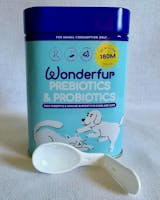Scientific Benefits of Omega-3 Every Cat Owner Should Know
The cat's general personality is inquisitive nature, intelligence, and self-sufficiency. Nonetheless, under their secretive nature these pets need exactly the same things as other pets to be healthy: love along with proper care and nutritious food. A majority of pet owners who take care of their cats through water and protein sources often disregard the critical nutritional value of Omega-3 fatty acids.
Veterinarians recommend Omega 3 for cats since medical studies show this fatty acid provides health benefits. But what exactly makes these fatty acids so special? Let’s break it down.
What Are Omega-3 Fatty Acids?
Omega-3 fatty acids are among the vital polyunsaturated fatty acids because they participate in multiple bodily operations. There are three primary classes:
-
EPA (Eicosapentaenoic acid)
Supports overall skin and joint health
-
DHA (Docosahexaenoic acid)
Essential for brain and eye function
-
ALA (Alpha-linolenic acid)
Found in plant-based sources but must be converted to EPA and DHA, making it less efficient for cats
Cats lack the enzyme-based mechanism for creating omega-3 fatty acids so they need to get them through a proper diet. The correct proportion of these fatty acids supports the overall health of cats.
What Are the Benefits of Omega-3 Fatty Acids?
Skin and Coat Support
Dry, flaky skin, and shedding fur are not merely cosmetic problems but often indications of some nutrition missing in the cat’s regular diet. Omega-3 for cats helps in retaining a soft shiny coat and maintains proper hydration without drying up.
Research suggests that EPA and DHA help manage skin sensitivity by supporting the skin barrier. Many veterinarians recommend supplementing cats with omega-3 fatty acids in case of seasonal dryness or irritation. Omega-3 supplements can work to further support adequate skin hydration when used in combination with good cat vitamins.
Joint Mobility in Cats of All Ages
According to studies, up to 90% of cats over the age of 12 show osteoarthritis symptoms (Hardie et al, 2002).
Nevertheless, it's a common mistake to think of joint health as being a concern only for older pets. Young cats can be very active and playful creatures and they rely on strong and flexible joints. Omega-3 fatty acids contribute to joint flexibility by promoting natural inflammatory processes within the body.
Supplementation of omega-3 for cats has shown noticeable differences in movement and activity levels in cats. Results vary, but regular use may lead to long-term joint ease. If your cat needs extra help, vitamins for cats aiming at joint and mobility health can be of help.
Cognitive Function and Brain Health
DHA is a critical structural component of the brain, and thereby, it is indispensable for cognitive functioning. Whether a playing kitten or an aged cat, Omega-3 fatty acids will contribute to maintain the sharpness of the brain and stay mentally engaged.
Kittens especially gain from DHA during early development. In fact, adequate DHA levels enhance vision and learning in growing cats.
Omega-3 fatty acids would help aged cats in memory retention and cognitive alertness. Though no supplementation can stop the aging process, a DHA-fortified and balanced diet may improve a cat’s overall cognitive condition.
Eye Health and Visual Clarity
Cats are heavily dependent on their vision for hunting, orientation, and understanding the world around them. DHA is an essential component of retinal cells and therefore has a role in supporting visual functions.
Scientific benefits of omega-3 suggest that adequate omega-3 for cats intake may help preserve eye health as cats age. While there is genetic and environmental influence over vision, it is necessary to provide the right nutrients for optimal short-term and long-term functioning of the eyes.
Supporting Heart Health
The heart works tirelessly (phew!) to supply blood, carrying oxygen to each part of a cat’s body. Omega-3 fatty acids, typically EPA and DHA, contribute to maintaining cardiac functionality.
Numerous studies have shown that giving dogs and cats the right omega-6/omega-3 fatty acid ratio (approximately 6 to 1) decreases their risk of developing certain diseases, such as cancer and sudden cardiac death.
Where Do Omega-3s Come From?
Not all sources of omega-3 fatty acids are equal. The most effective forms for cats come from marine sources, such as:
-
Fish oil for cats (Salmon, sardine, anchovy, mackerel)
Rich in EPA and DHA
-
Krill oil
Highly bioavailable, though often more expensive
-
Mussels (Green-lipped mussels)
Naturally occurring omega-3 fatty acids with additional joint-supporting properties
Although ALA can be found in plant-based sources such as flaxseed, marine-based omega-3 fatty acids are usually advised since cats are unable to effectively convert ALA to EPA and DHA.
Wonderfur Omega Oil for Cats: The Best Way to Support Your Cat’s Omega-3 Needs
If you're looking for an easy way to introduce omega-3 for cats into your cat’s diet, Wonderfur omega oil is an excellent option. This high-quality supplement is:
-
100% Natural
You can trust that your pet is getting the purest omega-3 fatty acids available.
-
Vet Endorsed
Developed with the input of veterinary experts to ensure optimal health benefits.
-
Made in Australia
Proudly produced locally to meet the highest standards.
-
Eco-Friendly Packaging
Good for your pet and the planet, because we care about both.
-
Premium Atlantic Salmon Oil
A rich source of EPA and DHA to support skin, coat, joints, and cognitive health.
How to Introduce Omega-3s to Your Cat’s Diet
Cats are known for their selective palates, so introducing new supplements requires a little patience.
-
Start small
Begin with a tiny amount of Wonderfur omega oil and gradually increase the dosage.
-
Mix with food
Fish oil for cats can blend seamlessly into wet food or be drizzled over kibble.
Choose high-quality sources: Look for products that specify purity and undergo third-party testing.
The Bottom Line
Wonderfur omega oil contributes to multiple aspects of feline well-being, from skin health to cognitive function. With proper sourcing and dosage, these essential fats provide long-term support for cats of all ages.
Of course, a well-rounded diet includes more than just omega-3s. If you want to spoil your feline friend, consider complementing their diet with the best cat treats—ones packed with natural ingredients that support overall wellness.
Wouldn’t it be great if your cat could benefit from high-quality, science-backed omega-3 fatty acids? Take the first step in supporting their well-being today!

